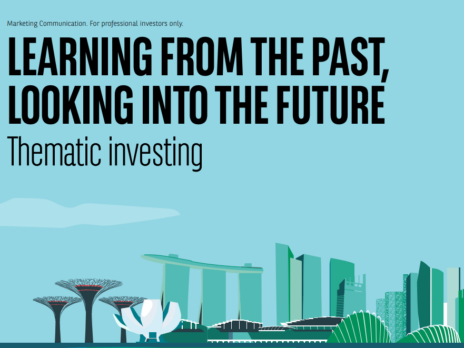
To reach net zero carbon emissions by 2050 and limit global warming to below 1.5°C, the world must roll back its reliance on fossil fuels. At Cop28 in Dubai, more than 190 countries approved an agreement calling for this energy transition. Renewable sources of energy must take their place. Globally, around a quarter of our energy is now produced using renewables. Production must be accelerated, and at speed, if we are to reach our targets for greenhouse gas emissions. This makes the green energy transition a crucial opportunity for investors.
Still, obstacles to developing renewables at scale remain. These include the impact of geopolitical events on supply chains. Edward Lees, co-head of BNP Paribas Asset Management’s Environmental Strategies Group, explains that during the Covid-19 pandemic, renewable energy “supply chains were challenged to get what they needed”.
Cross-border tensions can throw up obstacles. Lees says that for those companies producing renewables in the US, friction with China can have a knock-on effect on scaling up production. As an example, Lees notes that “certain components that China makes had been blocked at [US] ports”. He explains there are “specific trade issues and protectionism between countries that can sometimes challenge supply”.
Although these issues pose difficulties, there is an international consensus for a concerted move towards renewable alternatives. Many countries are developing policies. The US Inflation Reduction Act has made investment in developing renewable energy far more attractive. And a future Labour government in the UK may look to outline a similar offering to investors as part of its £28bn green prosperity plan.

Local opposition can stand in the way. Using land for solar panels or wind turbines has been objected to on the grounds that it could be saved for farming. But there are also opportunities that allow land to be used for farming and renewable energy production. On “dual purpose fields”, there is room for both. “We can raise [solar panels] up high,” Lees explains, “and still have sheep grazing underneath them.”
Even when a project does get off the ground, Lees points out that the grid itself “isn’t really fit for purpose yet”. In both the UK and the US, a huge amount of work needs to be done to build out the grid to accommodate greater renewable power generation. At the moment, connections aren’t always in the places they are most required, which means that extra infrastructure such as cables or pylons are needed to link projects.
“We need to grow power transition lines by about 5.7 per cent in a year,” Lees says, “but in reality, growth has only been about 1.5 per cent a year.” In the last five years, this has slowed to around 1 per cent a year. “We haven’t been making nearly the investment that we need,” Lees adds.
This presents an opportunity. As more governments look to scale up their use of renewables, investing in new technology to help upgrade the grid could become an attractive area for investors.
In the UK, the government is set to develop a new spatial plan for UK infrastructure, which will require an increase in grid connections. The system for connecting projects on to the grid will be adjusted to allow projects that are ready to connect to do so. This will replace the existing and problematic first come, first served model that had been slowing down connections. This offers an opportunity for the rapid development of UK-based renewable projects.
And in October 2023, the World Bank granted South Africa a $1bn loan to upgrade its energy grid. The country has been struggling, with coal-fired power stations breaking down and citizens left without power for up to ten hours a day. A pivotal moment now awaits to help South Africa transition to more sustainable and reliable grid infrastructure that largely uses renewables.
Added to this is the rising demand for energy independence and security owing to the energy shortages caused by recent global events such as the Russian invasion of Ukraine. Scaling up renewable power sources will be essential to further lower energy prices for consumers, as well as tackling global warming. A 2022 International Renewable Energy Agency report showed that almost two thirds of renewable power added in 2021 had lower costs than the cheapest coal-fired options in G20 countries.
Looking to overcome challenges such as modernising the grid and competing land uses will be essential in developing renewables at scale. Innovative solutions exist and a supportive policy backdrop means many more will emerge. Investors may want to take notice.
[See also: The UK could be financing the global energy transition]



